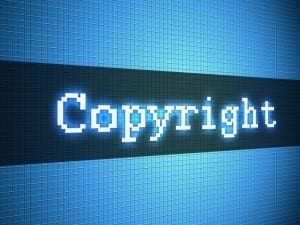There hasn't been a major overhaul of the U.S. copyright law passed in Congress since 1976. In the nearly 40 years that have passed since that time, the entire landscape of the music industry has changed, particularly in the past two decades.

To account for the more recent change, the Digital Millennium Copyright Act (DMCA) was passed in 1998 to govern the digital rights of artists and other rights holders. And though the DMCA is being constantly revised as digital technology evolves and new technologies emerge, some feel that it’s time for a complete overhaul of the copyright system to fully account for the new digital age.
Recently, the U.S. Register of Copyrights, Maria Pallante, went before a House Judiciary Subcommittee in Congress to suggest a copyright reform, which would apply to movies, books, software, mobile phones and, of course, music.
“I think it is time for Congress to think about the next great copyright act,” Pallante said in her remarks. “[Under existing law,] authors do not have effective protections, good faith businesses do not have clear road maps, courts do not have sufficient direction, and consumers and other private citizens are increasingly frustrated.”
We’re not here to argue the ins and outs of current or future copyright law, but we do know that the evolving state of the music industry as well as of the DMCA is something worth looking at.
Because the digital music industry is changing so fast, the DMCA is having to evolve to keep up. While it’s admirable that the law is adaptable to new technology, this means that precedents are constantly being made and replaced.
However, there are two overall ways the DMCA works:
As you might can imagine, both of these laws can (and do) have somewhat broad interpretations depending on the offense. This has the possibilities to be both good and bad, depending on the situation, and is part of the reason why Pallante feels it’s time to have a new look at overall copyright law.
“If one needs an army of lawyers to understand the basic precepts of the law,” she said in the hearing, “then it is time for a new law.”
This is what we don’t know. Although Pallante brought up a number of topics (including reviewing the DMCA), there’s no way to know what will actually become of new talks of reform. The only thing that we know for sure is that it won’t be anytime soon.
House Judiciary Chairman Rep. Bob Goodlatte called the hearing “part of a coordinated, slow march” toward reform.
It should be noted that the Copyright Act of 1976 took more than two decades to complete, and didn't go into effect until 1978.